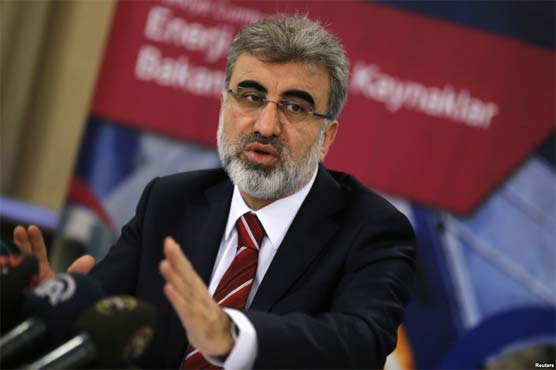Turkey to explore for oil in Iraqi Kurdistan: minister

Turkey's leaders have developed burgeoning links with Iraqi Kurds in recent years.
ANKARA (AFP) - Turkey said Monday it has clinched deals to explore for oil in Iraqi Kurdistan, a venture made possible by agreements with the central Baghdad government and the autonomous region.
"We own blocs in the foothills of the Qandil mountains as part of contracts we concluded with Baghdad and northern Iraq," Energy Minister Taner Yildiz was quoted as saying by the state-run Anatolia news agency.
The inhospitable region has long been the base of Turkish Kurds fighting for a separate state in bordering southeastern Turkey, but the move comes as momentum gathers for a historic peace accord to end the separatist conflict that has claimed some 40,000 lives.
Turkey, which is dependent on Russia and Iran for its growing energy needs, is seeking alternative sources of affordable oil and gas, and has increasingly seen Kurdistan as the best option.
Turkey s leaders have developed burgeoning links with Iraqi Kurds in recent years.
Baghdad took legal action last year when Ankara revealed it was helping Iraqi Kurds to export oil independently to international markets via Turkey.
Ankara s new move to prospect for oil in northern Iraq s Hindirin and Coman fields could also make waves in Baghdad despite the contracts and an agreement between Baghdad and the autonomous Kurdish region over the budget and oil exports.
The minister s announcement comes after the jailed leader of the outlawed Kurdistan Workers Party (PKK), Abdullah Ocalan, called on the rebel group on Saturday to hold a congress on disarmament, in a historic appeal to end Turkey s long-running Kurdish insurgency.
President Recep Tayyip Erdogan has welcomed Ocalan s call as "very important" but cautioned that earlier calls made by the Kurdish rebels had failed.
The PKK, blacklisted as a terrorist organisation by Turkey and much of the international community, took up arms in 1984 with the aim of creating an independent Kurdish state, but has since scaled back its demands to greater autonomy for Kurds.


